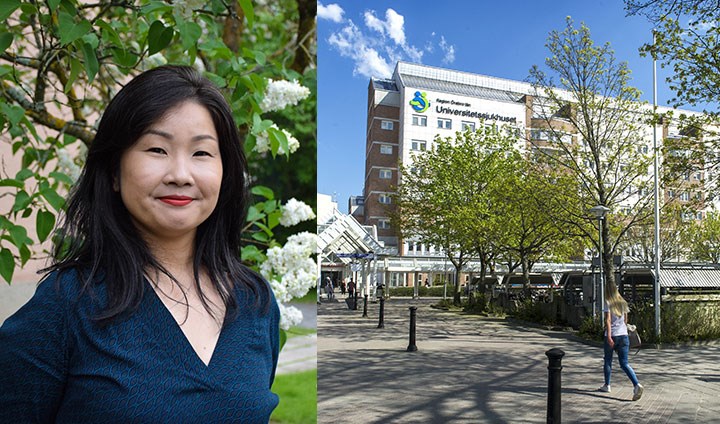Örebro research on young adults published in top-ranked scientific journal

Ayako Hiyoshi is an epidemiologist at the Örebro University Hospital.
Teenagers and young adults who have experienced the death of a parent are more likely to suffer from drug abuse and suicidal behaviour than their peers. This is shown by research conducted at Örebro University Hospital and Örebro University and recently published in the highly respected journal, The Lancet Public Health.
The death of a parent is a leading cause of severe distress. When a child or adolescent loses their parent, it may be even more stressful. It is generally known that children who have experienced an early parental death have an increased risk of suffering from mental health problems many years later. A new study by Ayako Hiyoshi, epidemiologist, and her colleagues at Örebro University Hospital and Örebro University, shows that suicide and drug abuse are more common in this group, especially among girls and young women, before and on the anniversary of a parental death.
“Our research indicates that there are certain occasions when the risk for health problems increases. This is primarily around the anniversary of the death as well as the time preceding, likely because of anticipations associated with the anniversary. Many felt as bad during these times as they did at the time of the parent’s passing,” says Ayako Hiyoshi.
Study published in The Lancet Public Health
The study, recently published in the international scientific journal, The Lancet Public Health, is based on material that includes almost all teenagers and young adults in Sweden between the ages of 12–24 years.
In the study, researchers focused on addiction and suicide, both fatal but primarily non-fatal, and could establish the following associations:
- The risk for drug abuse and suicide increases around the date when a parent dies and the first anniversary of the death.
- For girls and young women, there is a continued recurring risk over several anniversaries following parental death.
- Among girls and young women, there is also a risk in the time leading up to the anniversary of a parental death, when anticipation for the coming anniversary is high.
- For boys and young men, only the first anniversary of death was risky, not the following anniversaries.
“Children and adolescents, especially girls and young women, who’ve mourned a beloved parent can benefit from preventive measures to reduce the suffering associated with anniversaries of a parental death including the anticipation of these,” says Ayako Hiyoshi in summary.
Text: Johanna Berglund
Foto: Elin Abelson and Lars-Göran Jansson/Region Örebro County
Translation: Jerry Gray
